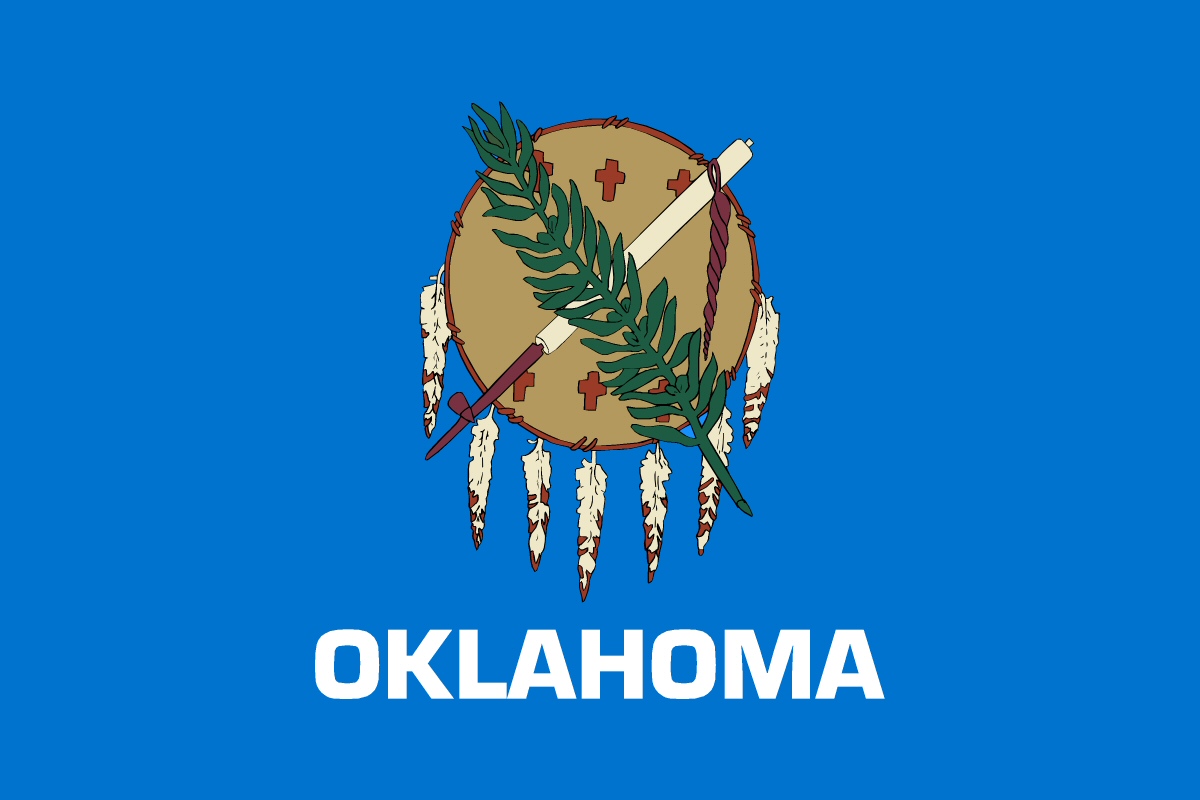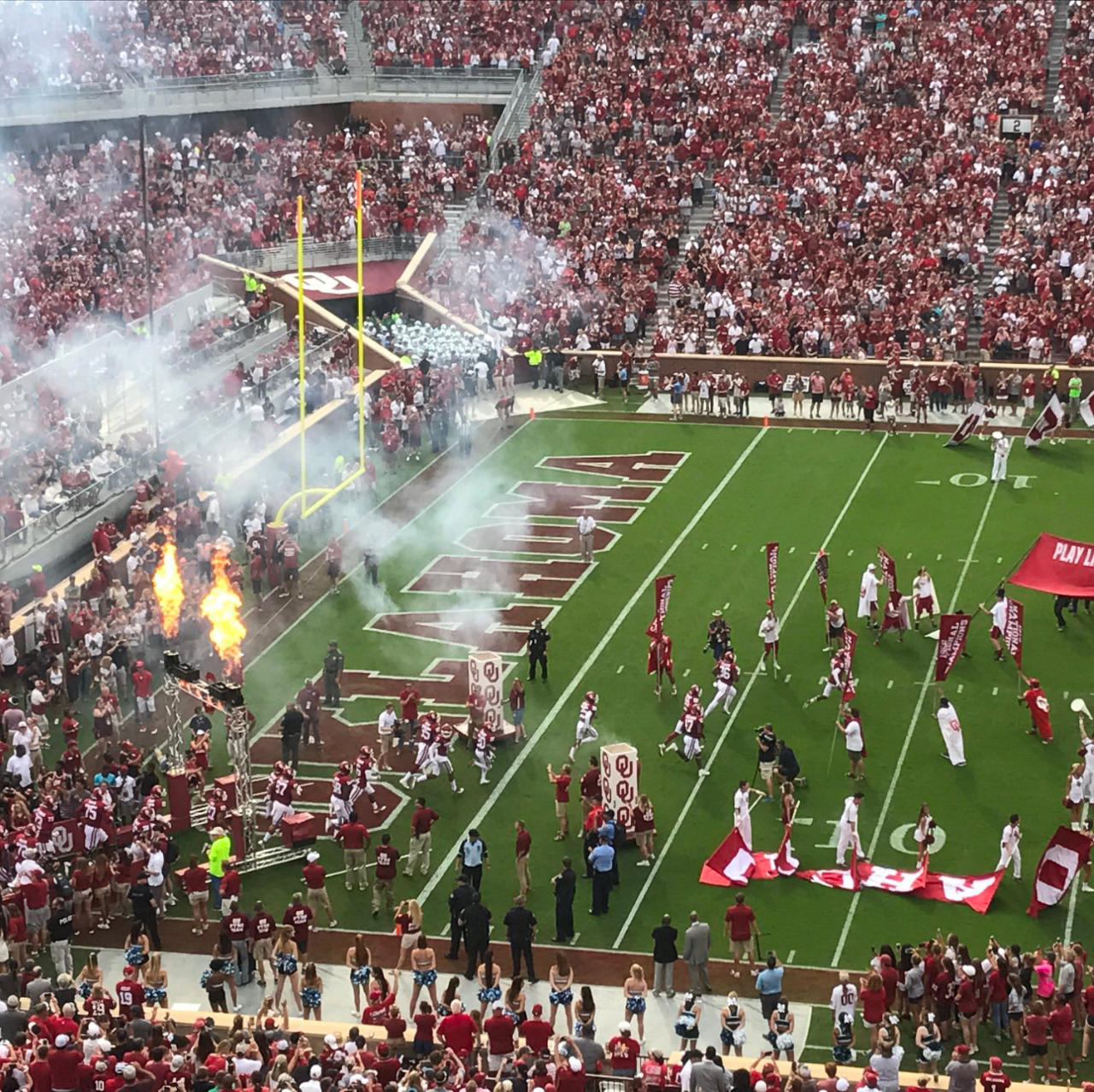State of Oklahoma Short-Term Rental Regulations
Short-term rental regulations vary depending on the location and may include zoning laws, occupancy and safety standards, taxation, licensing, and insurance requirements review our guides for more information specific to your city.
Reviewed by Derick Hargrave
Last updated October 08, 2023

Overview of Oklahoma Short-Term Rental Regulations
Information is maintained by the community to provide helpful insights and links to local regulations, HostScouts does not provide legal or investment advice.
Oklahoma draws over 20 million visitors annually, seeking adventures like touring the Wichita Mountains Wildlife Refuge, discovering the OKC National Memorial, exploring the Tallgrass Prairie Preserve, and experiencing Native American culture. When traveling to popular destinations like Oklahoma City, Tulsa, Norman, and Stillwater, many opt to stay in short-term vacation rentals for added amenities, space, and convenience. For property owners, listing extra bedrooms or a secondary home on sites like Airbnb, Vrbo, and Vacasa allows them to profit amid this tourism demand. However, hosts must navigate Oklahoma’s patchwork of local ordinances governing short-term rentals, as limited statewide statutes are currently in place.
Defining Short-term Rentals in Oklahoma
With limited statewide oversight, jurisdictions across Oklahoma take varied approaches to defining short-term vacation rentals. However, some common themes emerge.
- Local Definitions of Short-term Rentals - Oklahoma cities typically define short-term rentals as housing units rented out for 30 consecutive days or less. This covers typical home, apartment, and room rentals on sites like Airbnb and Vrbo.
- No Unified Statewide Definition - Oklahoma does not have a singular statutory definition of short-term rentals that applies across the state. Local governments establish their own definitions.
- Types of Rentals Included - Listings may be for a single room, entire home, apartment, condo, carriage house, or other residential space. But under 30 days qualifies them as short-term rentals.
Starting a Short-term Rental Business in Oklahoma
Launching a compliant short-term rental business in Oklahoma takes research, planning, permitting, registration, and coordination across hyper-local requirements.
- Checking Local Zoning and Requirements - Review municipal or county ordinances to see if short-term rentals are allowed in the property's zoning district and if any local permits, licenses, or inspections are required.
- Applying for Any Necessary Local Permits - Obtain any required local short-term rental permits, licenses, or registrations if mandated in your jurisdiction before listing. Requirements vary across Oklahoma.
- Registering for Relevant State Taxes - You must collect and remit all applicable state sales taxes and state lodging taxes on short-term rental revenue. Registration ensures you meet tax obligations.
- Researching Relevant HOA Bylaws - Confirm condo association or neighborhood HOA bylaws allow short-term rental of units. If needed, get HOA approval in writing before listing the property.
State Regulations on Oklahoma Short-term Rentals
While granting local control over most issues, the Oklahoma state government does impose some consistent requirements related to taxation that apply to STRs statewide.
State Tax Requirements
Oklahoma requires hosts to collect and remit all applicable state sales taxes and lodging taxes on short-term rental revenue. Taxes fund state and local services and tourism efforts.
No State Licensing or Permits
Unlike many other states, Oklahoma does not require hosts to obtain a statewide permit, license, or registration to operate short-term rentals. However, local permits are often required.
Limitations on Local Authority
Per state law, any local short-term rental regulations must be reasonable in scope. Cities cannot enact bans or unnecessarily restrictive ordinances infringing on private property rights.
State Safety and Building Oversight
The state provides baseline enforcement of building, electrical, fire, safety, health, and accessibility codes. However, detailed STR oversight is left to local jurisdictions.
Local Rules for Oklahoma Short-term Rentals
Cities and counties across Oklahoma take varied approaches to short-term rental governance, leading to a complex patchwork of hyper-local regulations hosts must navigate.
- Common Types of Local Regulations - Popular tourist areas often require registration or permitting, restrict locations through zoning, cap the number of allowed rentals, and levy local taxes on short-term properties operating in their jurisdiction.
- Local Permitting and Inspections - Municipalities like Oklahoma City require hosts to obtain permits or licenses through registration. Properties must pass inspections related to safety, parking, and more.
- Fines for Violations - Penalties for violating local ordinances vary but may include fines of $100-500+ for unpermitted rentals, depending on the severity and frequency of occurrences.
- Monitoring and Enforcement - Cities follow up on complaints regarding issues like noise, trash, and occupancy limits. Permits may be revoked for repeat violations. Taxes are closely tracked.
Safety Standards for Oklahoma Short-term Rentals
Oklahoma short-term rentals must comply with various codes and regulations imposed by state and local authorities to legally operate.
State Public Health and Safety Regulations
Oklahoma imposes baseline requirements related to water quality, proper wastewater disposal, disease control, hazardous materials, and fire safety.
Local Fire Safety and Building Codes
Cities and counties enforce standards for smoke detectors, fire extinguishers, properly marked exits, electrical safety, cleanliness, and more through inspections and permitting.
Occupancy Limits and Parking
Most jurisdictions restrict the maximum number of guests and vehicles allowed at a short-term rental property based on factors like bedrooms, lot size, and available on-site parking.
Taxes on Short-term Rentals in Oklahoma
Oklahoma imposes various state and local taxes on short-term rental properties that hosts must factor into their pricing and budgets. Understanding this tax landscape is crucial for STR's success.
State Sales Tax
A 4.5% Oklahoma state sales tax applies to all short-term room rentals under 30 consecutive days across the state. As a host, you must collect this tax from guests and remit it to the Oklahoma Tax Commission.
State Lodging Tax
In addition to sales tax, hosts must collect and submit a 4.5% Oklahoma state lodging tax on all rentals under 30 days. This is charged on top of the standard sales tax for a total state tax rate of 9%.
Local Lodging Taxes
Select cities and towns charge their own local lodging taxes on STRs in addition to state sales and lodging tax:
- Oklahoma City levies a 7% lodging tax on all rentals under 30 days.
- Norman, OK, imposes a 5% lodging tax on top of state taxes.
- Tulsa charges a 6% lodging tax on short-term rental transactions.
- So be sure to research any local lodging taxes that apply to your city or town rentals.
Rental Revenue Subject to Income Tax
Net rental income is subject to federal income taxes. Oklahoma income tax also applies if annual profits exceed $1,000. Remember to accurately report earnings.
Carefully researching the combination of state and local taxes imposed on short-term rentals across Oklahoma is crucial for staying compliant. Factor these in when establishing rental rates and budgets.
Insurance Considerations for Oklahoma STRs
Evaluating insurance needs often gets overlooked when starting an Oklahoma short-term rental. Here are important considerations for hosts:
- Reviewing Existing Homeowners Insurance -Standard homeowners policies typically exclude commercial activity like short-term rentals. Verify if your current policy provides coverage.
- Exploring STR-Specific Policies - Consider insurance designed specifically for short-term rental properties, including liability, property damage, lost income, and other protections missing from standard policies.
- Local Insurance Requirements - Some Oklahoma cities require hosts to carry commercial liability insurance up to certain limits in order to register their short-term rental. Check local laws.
- Protecting Assets - Proper insurance helps shield hosts from expensive claims, lawsuits, or damages if a rental guest is injured on the property or files any legal action related to their stay.
Oklahoma Airbnb Regulations by City
Information is maintained by the community to provide helpful insights and links to local regulations, HostScouts does not provide legal or investment advice.







